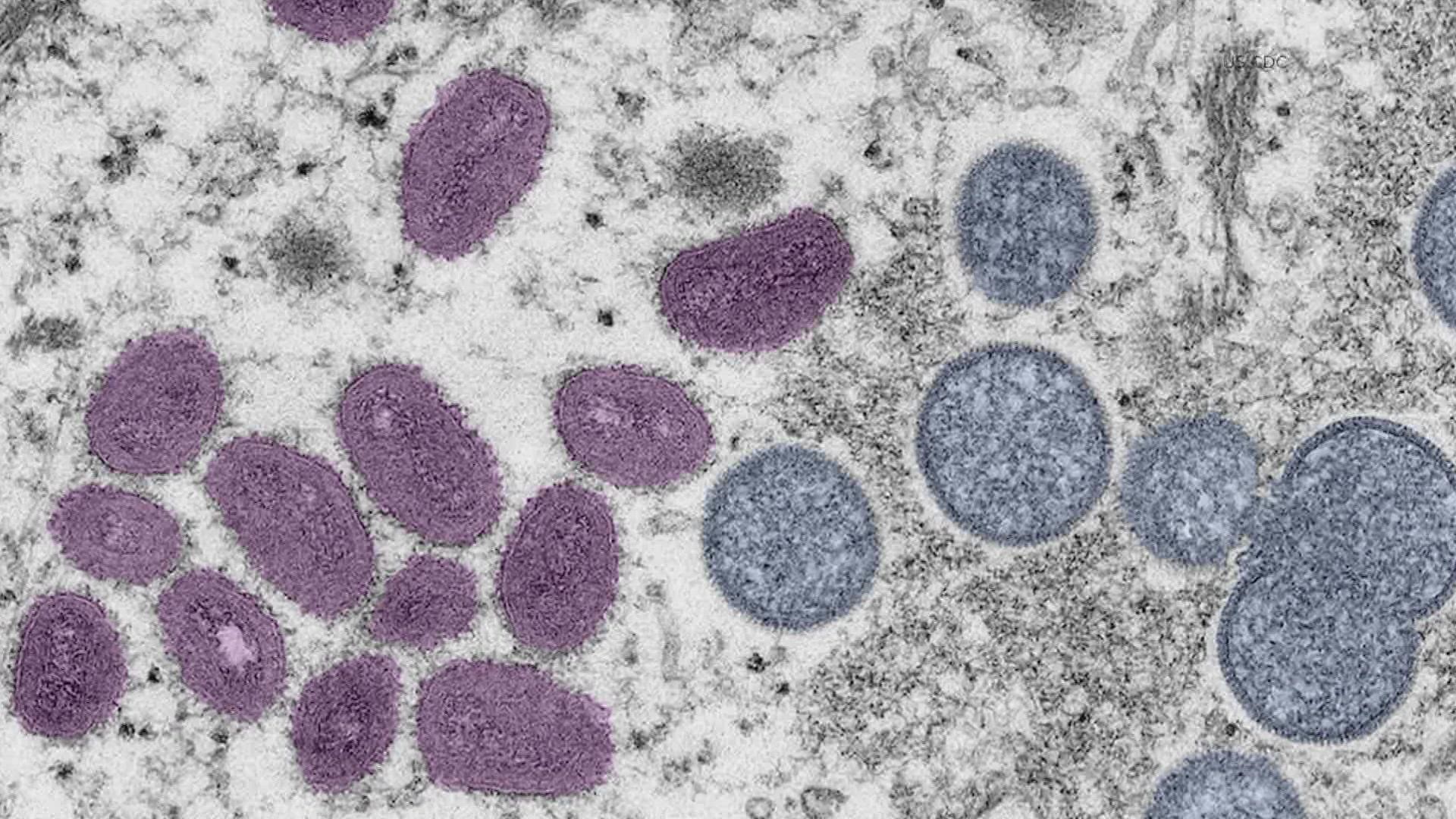PORTLAND, Maine — The Maine CDC is teaming up with LGBTQ+ organizations to educate people about the risk of monkeypox.
Maine's CDC reported the first confirmed case in a man from York County on Friday. The following day, the World Health Organization declared the virus a global health emergency.
Anyone is at risk for catching the virus, according to Maine CDC Director Dr. Nirav Shah. He said that men who have sex with men are at an increased relative risk.
"The risk to the general public is low. And that's a good thing. Our goal is to keep it that way," Shah said Friday. "This outbreak has predominantly affected, right now, men who have sex with men. That's because of the way it started in western Europe at some gatherings, and that has spread through those very tight-knit, close communities."
Dr. Jennifer McQuiston, deputy director of the U.S. CDC's division of high consequence pathogens and pathology, held a call with public health officials and reporters on Friday, saying 99 percent of cases in the U.S. are among that community.
A New England Journal of Medicine paper that was published on Thursday and says 98%. That study looked at 16 countries, not just the U.S.
"We acknowledge that it could potentially affect anyone, and indeed we don't want that to happen. Simultaneously, we acknowledge, as we have to, epidemiology that different people have different risks. We're not going to run away from that fact."
Now, health leaders, including Shah, are trying to combat the stigma that LGBTQ+ community leaders became instantly worried about.
"There is no such thing as a 'gay disease.' Viruses don't abide sexual orientation. In that sense, anyone is at risk from monkeypox," Shah said. "We don't stigmatize those who are at risk by noting that they have a higher relative risk. If anything, according to some experts I've spoken with, we have an obligation to be straight with people, that there are some groups that are at a higher risk than others."
Frannie Peabody Center Executive Director Katie Rutherford explained it's the sense of one community being at risk, not at fault. She drew a parallel to how older people were initially at higher risk of catching COVID, and the CDC trying to stop the virus from spreading to other people.
"The LGBTQ+ community already experiences discrimination just for existing," Rutherford said. "To really stand up for others and put a stop to that in its tracks — really the biggest strength that we have is just understanding it and being brave enough to stop that type of behavior."
Right now, the Maine CDC has 311 courses of the monkeypox vaccine, which it plans to distribute to clinical centers in the state for people who are most vulnerable. Rutherford said most people get the vaccine after exposure.
Shah said the 311 doses are not enough, but that he expects the state to receive more in mid-August.
"We want to make sure that those who are at a higher relative risk have what they need to stay safe," Shah said.
Shah added that it is especially important to be open and honest with your health history if you are meeting someone new.
Symptoms of monkeypox can include:
- Fever
- Headache
- Muscle aches and backache
- Swollen lymph nodes
- Chills
- Exhaustion
- A rash that can look like pimples or blisters that appears on the face, inside the mouth, and on other parts of the body, like the hands, feet, chest, genitals, or anus.
The rash goes through different stages before healing completely. The illness typically lasts 2-4 weeks. Sometimes, people get a rash first, followed by other symptoms. Others only experience a rash.
Monkeypox spreads in different ways. The virus can spread from person-to-person through:
- direct contact with the infectious rash, scabs, or body fluids
- respiratory secretions during prolonged, face-to-face contact, or during intimate physical contact, such as kissing, cuddling, or sex
- touching items (such as clothing or linens) that previously touched the infectious rash or body fluids
- pregnant people can spread the virus to their fetus through the placenta

